February 28, 2020
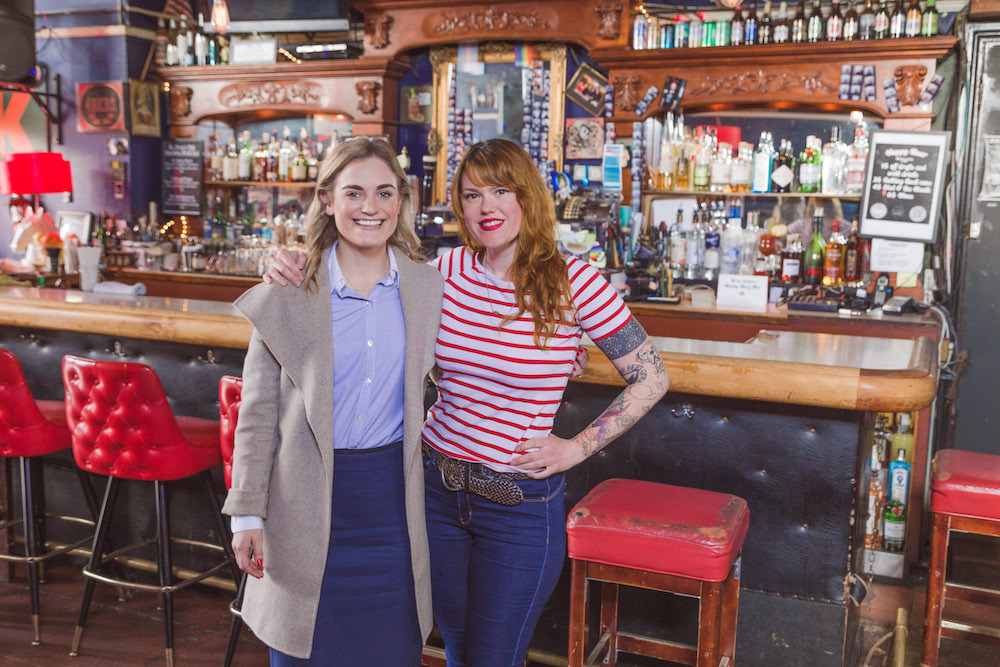
San Francisco’s small businesses are in crisis. A number of factors are driving even decades-old businesses to close their doors: difficulty hiring employees due to the city’s housing crunch, competition with e-commerce and on-demand delivery giants, and extra pressure from city-imposed mandates.
But there is one factor business owners can theoretically control: buying their spaces instead of leasing them, as a hedge against skyrocketing commercial rents.
In a real estate market where down payments can easily run $500,000 or more, that’s no easy task. We spoke to several San Francisco small businesses that were able to buy their spaces — as well as a nonprofit dedicated to the cause — to find out how they got it done.
Rising rents drive search for long-term security
For the owners of popular breakfast spot Plow (1299 18th St.), buying their Potrero Hill building was a proactive move to ensure security during rough times.
“We were hearing horror stories about seismic retrofits, and started to get worried,” co-owner Joel Bleskacek told Hoodline, noting that extended closures for retrofits have put many restaurateurs out of business. “That’s when we started actively asking the owner [of our building] if they would sell it to us.”
Bleskacek and his wife/business partner, Maxine Siu, knew they wanted to stay in the neighborhood. So they spent the next three years negotiating with their landlord to purchase the building on the corner of 18th and Texas streets, which also includes four residential units.
When the owner finally acquiesced, Bleskacek and Siu committed to the extra cost of paying for the seismic retrofit, which is currently in progress.
“Financially, right now it’s a stretch,” said Bleskacek. “But we’re thinking long-term. We have kids, and making these improvements gives us the opportunity to have a passive income for the future.”

Other proprietors have treated buying as an investment that can supplement paying rent on another location.
When she and partner Mason St. Peter opened their Outer Sunset retail shop, General Store, in 2009, “we had a four-year lease and no rent control — that’s not a lot of security,” said artist Serena Mitnik-Miller.
After trying and failing to buy their original space at 4035 Judah St., Mitnik-Miller and St. Peter were able to purchase a second location at 3928 Irving St., allowing them to expand within the neighborhood.
The rent they receive for the residential unit in the Irving Street building helps cover the rent on the Judah Street space, which has doubled since the shop first moved in.
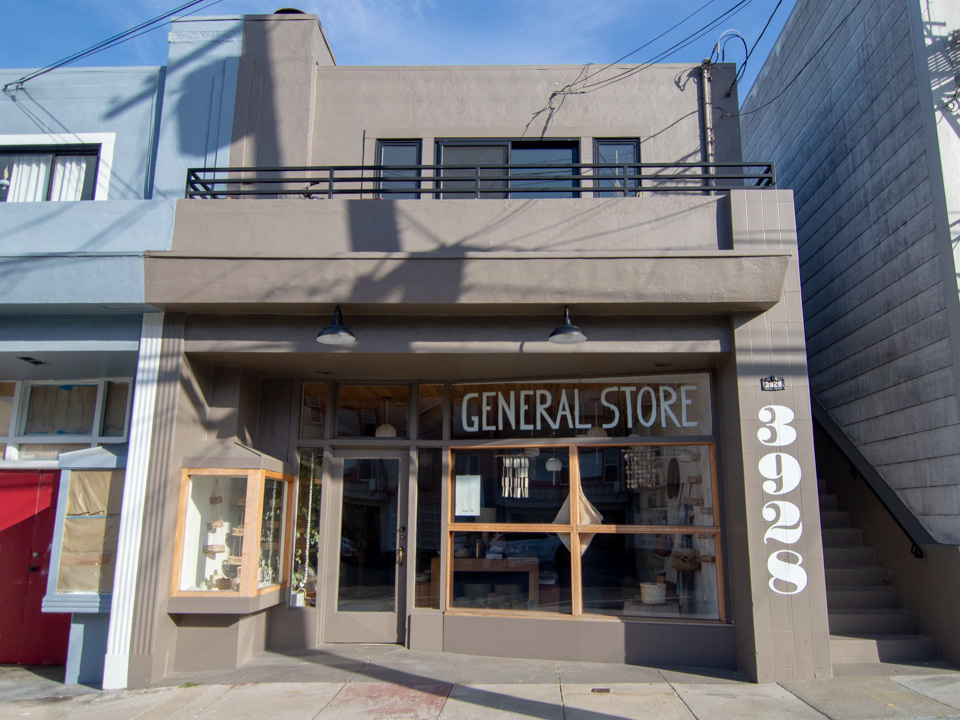
Perhaps most crucially, owning commercial property has provided security for historic San Francisco businesses.
Last year, the mixed-use building that houses Bernal Heights’ 85-year-old St. Mary’s Pub (3845 Mission St.) went up for sale. Owner Maria Davis feared that a rent increase from a new landlord “would be a death sentence for the business — maybe not right away, but at some point.”
In an effort that took nearly a year, Davis was able to raise the necessary funds to purchase the building, allowing her to secure employment for herself and her staff.
Now, she says, she can focus on the business itself, instead of worrying about a potential rent hike. That’s freed up time to pursue projects like Three Sisters, her brand of bottled Bloody Mary mix derived from the bar’s famous recipe.
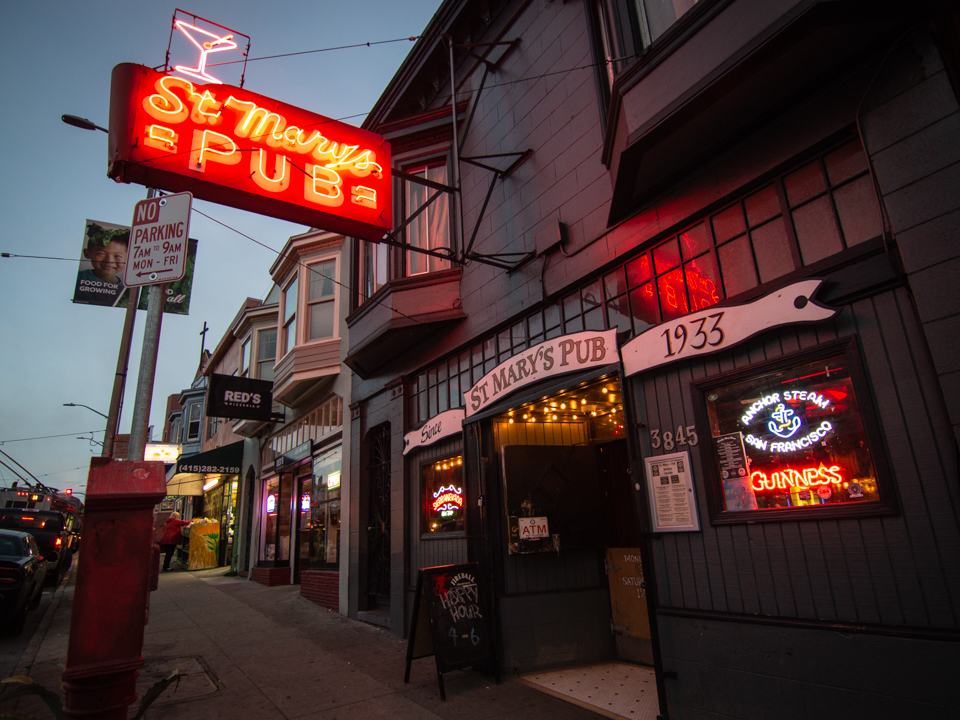
An Oakland nonprofit provides financial help
The owners of Plow, General Store and St. Mary’s Pub had one thing in common: they needed help securing a down payment that would allow them to buy.
That help came from TMC Financing, an Oakland-based nonprofit founded in 1981. It’s one of the first outfits of its kind to offer the SBA 504 loan, which is designed to help small- to medium-sized businesses buy fixed assets like equipment or commercial real estate.
“There are so many small businesses who would benefit from buying their own property, but just don’t know this option exists,” says founder and CEO Barbara Morrison.
Under the SBA 504 loan program, a small business only has to come up with a 10% down payment to buy, compared to the typical 30%. A Certified Development Company (CDC) like TMC Financing provides 40%, and the remaining half comes from a traditional lender, like a bank.
For its portion of the loan, TMC offers clients a low, fixed interest rate, maximizing their chances of being able to pay the money back. Last year, it provided $23 million in SBA financing for 20 businesses in San Francisco.
Combined with the low down payment, “[we] make it possible for many businesses that assumed all along that owning was completely out of their realm,” Morrison says. “It begins to open up that possibility.”

Over its nearly four decades of operation, TMC has supported more than 400 San Francisco businesses in purchasing their buildings. In the late 1990s, it provided the loans that allowed North Beach’s historic Vesuvio Cafe and City Lights Bookstore to become their own landlords, preserving two icons of the Beat movement.
Other Bay Area businesses who have secured their brick-and-mortar locations with help from TMC include Marina Morrison bridal salon and Blazing Saddles Bike Rentals in San Francisco, Picante in Berkeley, and the historic Kingfish Pub in Oakland.
While many of its clients are retailers and restaurants, TMC has worked with everyone from plumbing companies to beauty salons to general contractors.
“We probably wouldn’t have bought the building without [TMC’s] help,” said Mattia Cosmi, co-owner of The Italian Homemade Company, an Italian eatery with locations in North Beach, Hayes Valley, and Cow Hollow.
Cosmi and his wife, Alice Romagnoli, opened their first North Beach location six years ago, at 716 Columbus Ave. Thanks to a broker who introduced them to TMC, they were able to purchase the former Caffe Roma space, two blocks away at 526 Columbus Ave., in 2018.
“We thought we could do a great thing for the neighborhood by opening a new location and avoiding another empty storefront,” Cosmi said.
He and Romagnoli are still struggling to get the Caffe Roma space permitted, but eventually plan to run both locations simultaneously. (They’re a year into their second five-year lease on the original Columbus Avenue space.)
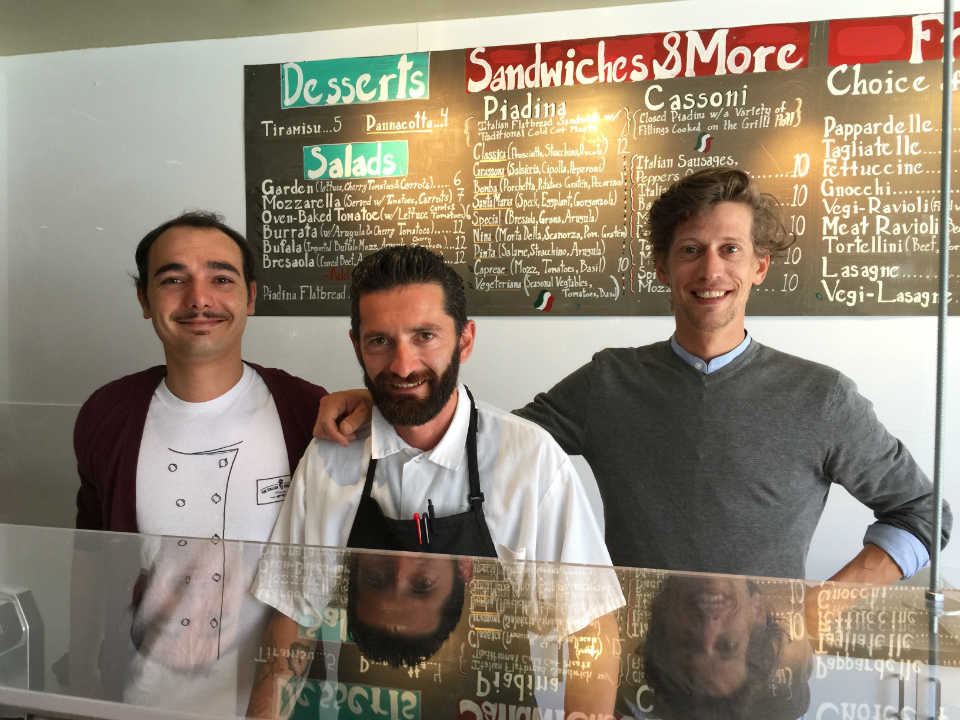
Many of TMC’s clients also cited its assistance in helping them navigate the federal Small Business Administration, which is notorious for complicated processes and a lack of online resources.
“If I had to go directly to the SBA, I probably wouldn’t have done it,” said General Store’s Mitnik-Miller.
Additional costs, competition for real estate, and other challenges
Buying a commercial space in San Francisco is not as simple as finding the perfect property and getting a loan approved.
The SBA 504 loan program comes with occupancy requirements, which state that the business owner must hold the master lease of the purchased building and be its primary occupant. While an owner can collect rent from other units in the building, their business must occupy at least 51% of the building.
In San Francisco, properties that meet these requirements aren’t easy to find — and competition can be high when one becomes available.
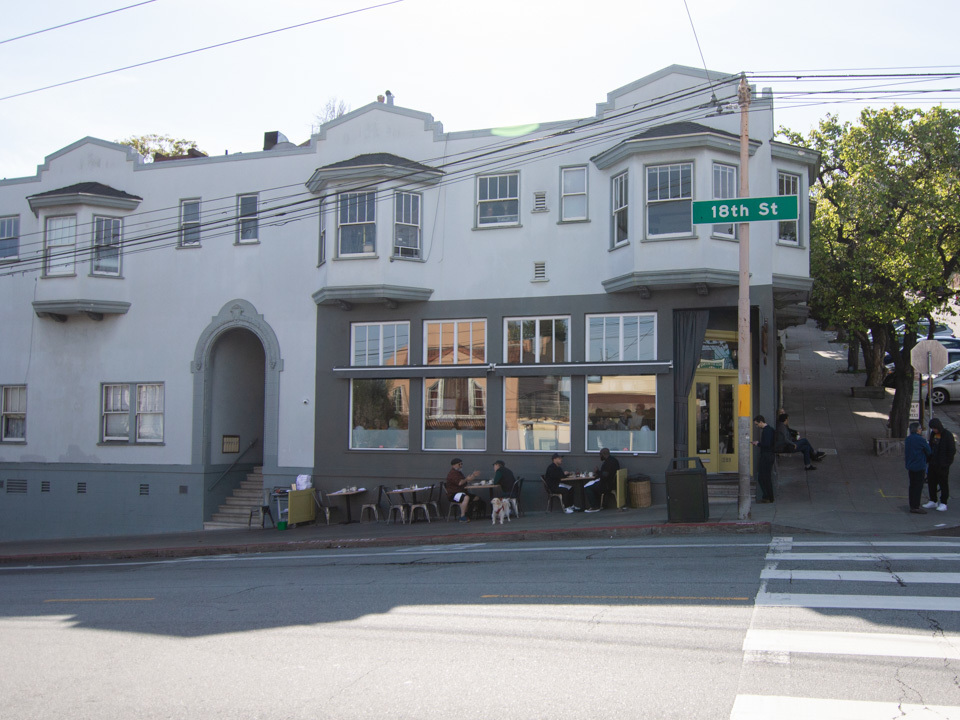
Even with assistance, the city’s real estate costs can still be staggering. Cosmi said the 10% down payment was “a big hit” to the business’ bank account, and combined with the permitting delays, has created some financial strain. For a business not looking to expand, but just stay afloat, those added costs can be a deterrent.
Despite that, Morrison notes that in the last 10-15 years, commercial rents have gone up even more significantly than commercial real estate prices. “Buying is more necessary today than it was when I first started,” she says.
Still, many property owners are not willing to sell. St. Peter and Mitnik-Miller say they gave their all to the necessary research, paperwork and negotiations to buy the Judah Street building, only to still have the owners decline.
“Even though the owners said no, going through that process made us realize we could do this,” said Mitnik-Miller. “So we figured we might as well try for something else.” With the Irving Street store, their family now has a permanent foothold in the neighborhood.

Is ownership the right move?
For business owners thinking of buying commercial property, TMC’s Morrison recommends reaching out early on for advice.
“Even if this year isn’t the best time for you to buy, it’s never too early,” she said, adding that TMC has worked with some business owners for years as they sought the right space. “We’re there for you every step of the way.”
Plow’s Bleskacek and General Store’s Mitnik-Miller agree that taking that first step can be daunting, but worth it for business owners who want to stay in the city long-term.
“A lot of people think they can’t do it,” said Bleskacek. “I was one of those people. But if you can get creative with your financing, the end result is that you’re no longer at the mercy of your landlord, and everything you’re putting into the building is equity.”
As a single, working mom, Davis said, the process of acquiring St. Mary’s Pub wasn’t easy. But she believes the year-long journey from renter to owner was worth it.
“It’s amazing how many organizations there are out there if you keep asking, investigating, and pursuing help,” she said. “Don’t give up.”
